The tide seems to be turning. It is looking increasingly likely that what is the daftest referendum ever dreamt up will be rejected. What will happen then is that Pearson, Langton, Burney, et al. will tell us that they are ashamed to be Australian, or that they are deeply hurt by the triumph of the rednecks. Dutton will be accused of forever tarnishing Australia’s good name, and ABC journos may immolate themselves outside their Ultimo sanctuary-cum-sheltered workshop in protest against racism. It didn’t have to be this way.
The central pillar of the Yes campaign is that the, for the first time in the past two centuries, the surviving members of the oldest continuous living culture in the world, will have their voices heard. Apparently the reason why Aboriginal communities are such a mess is because no one from federal and state governments, local councils, and all of the hundreds of bodies set up to help solve their numerous problems has listened to the people living in these communities.
What cannot be denied is that most of the efforts to end Aboriginal disadvantage and close the gap between the Aboriginal population and the rest of us have failed. Every-one agrees on that. Where unity collapses is in the solution. The Voice to parliament idea emerged, like Godzilla, from the primeval swamp of the First Nations National Constitutional Convention held at Uluru in 2017. Like Godzilla it has, thus far, proved indestructible. But, unlike that lovable little monster, this scheme was never going to fly.
I have an alternative to the Voice which doesn’t need an amendment to our beloved constitution. The current official proposal is for a structure of around 25 members representing specific constituencies who will then appoint a smaller group to advise parliament on matters affecting Aborigines. The members of the Voice team would be directly elected by their respective constituencies and would therefore be able to offer better ‘advice’ to government.
Instead of the hoo-hah about amending the constitution, a similar structure could have been created using the existing powers of parliament on a trial basis. A specific region, such as the Torres Strait Islands or the Kimberley, could be selected and the residents could then elect a representative with the advisory powers proposed by the advocates of the current proposal. That is, the representative would have the right to present to parliament advice to the federal government on any issue which concerned the members of his or her constituency.
If the advice that is produced is so good that specific improvements in the lot of the Aboriginal population of the specific area are apparent, then clearly this model of management of Aboriginal affairs can be extended to other regions. If the new scheme fails to make any discernible improvements to the problems confronting Aboriginal society, then it can be cast into the dustbin of history to rest alongside Atsic and the other failed schemes in this area.
Just what sort of ‘advice’ the elected representative will make is unknown. But no matter how good the advice is, it will not make any substantial changes to the current issues surrounding Aboriginal communities. This is because, at the present time, no one knows how to repair the damage inflicted by the arrival of Europeans on what were once called ‘primitive societies’, but which today, are classed as pre-industrial societies. Not one hunter-gatherer society anywhere in the world has made a successful transition to a modern socialist or capitalist social system.
Some individuals of course have made the transition and many have managed to maintain a strong connection to their pre-industrial heritage while successfully finding a place and purpose in the modern world. But the material advantages of modern industrial societies are so obvious and powerful that no pre-industrial culture has been able to maintain a substantial cultural integrity. Buddhist Bhutan which maintained isolation from the rest of the world until the 1970s was perhaps the last nation to resist the temptations of the modern world. Bhutanese young are now flocking to Australia in ever increasing numbers to frolic in the sun and savour the delights of an affluent capitalist society.
The current Aboriginal leaders, when confronted by the failure of remote Aboriginal communities, refuse to accept that they were never going to succeed. Instead, they blame the lawlessness upon the failure of the authorities to recognise traditional authority, they blame the appalling attendance rates at local schools on the lack of a curriculum which meets Aboriginal requirements and the high unemployment in these communities on the lack of culturally safe workplaces. Every measure of failure in these communities is shifted to government or racism within the Australian society.
The parents of Chinese, Indian, Vietnamese and Lebanese migrants, whose children attend school here, do not ask for a curriculum which respects their heritage. They understand the importance of the opportunity their children are offered and generally ensure that they take full advantage of it. They attempt to retain a link to their first language by sending their kids to Saturday language school at their own expense. Those links fade over two or three generations as the children of migrants become fully assimilated.
The current leaders of the Aboriginal population, aided and abetted by left-wing media outlets, are taking their community down a sterile path which can never succeed. Anthropologists now recognise that describing pre-industrial hunter-gatherer societies as ‘primitive’, was completely wrong. All languages and cultures have a potential for profound and rich insight into the nature of existence. But the sad fact is that, if the culture is destroyed, even if the language survives, the retained words become artefacts, devoid of the spiritual significance which they one embodied.
The Voice is simply another doomed effort to place the blame for the problems in Aboriginal society on actions by other people. It is true that the destruction of Aboriginal societies was brought about by the arrival of the British and then the Europeans. But those societies cannot be resurrected and assimilation is the only way forward for the survivors. Clinging to some sort of cod ‘Aboriginal spirituality’ seems to satisfy the mixed-race leaders who, in the main, prefer to ignore the part of their heritage which is European, despite the fact that their income is derived from the descendants of those Europeans. They are not helping ‘their people’.
Got something to add? Join the discussion and comment below.
Get 10 issues for just $10
Subscribe to The Spectator Australia today for the next 10 magazine issues, plus full online access, for just $10.
You might disagree with half of it, but you’ll enjoy reading all of it. Try your first month for free, then just $2 a week for the remainder of your first year.

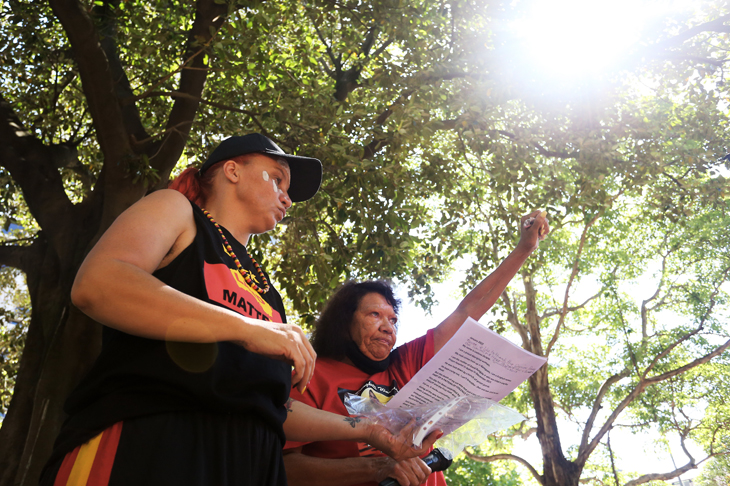
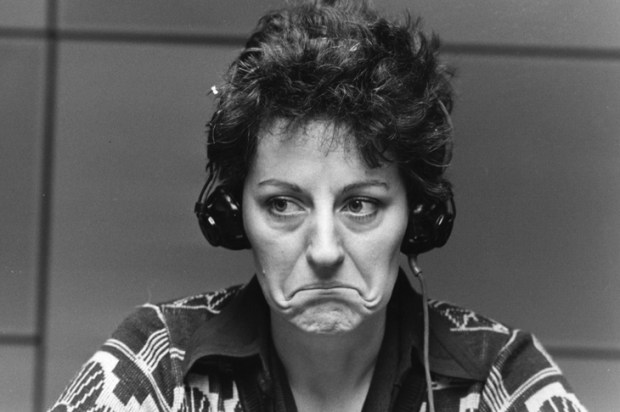

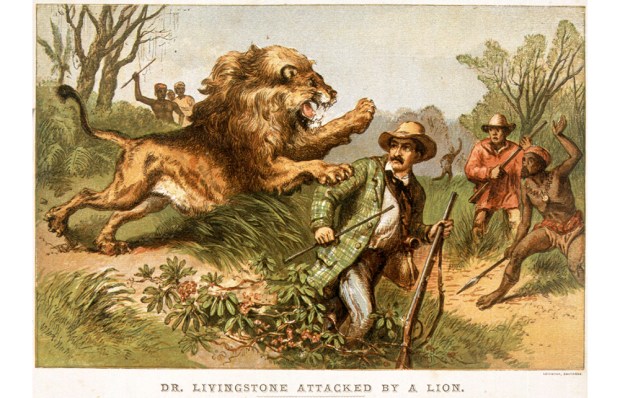
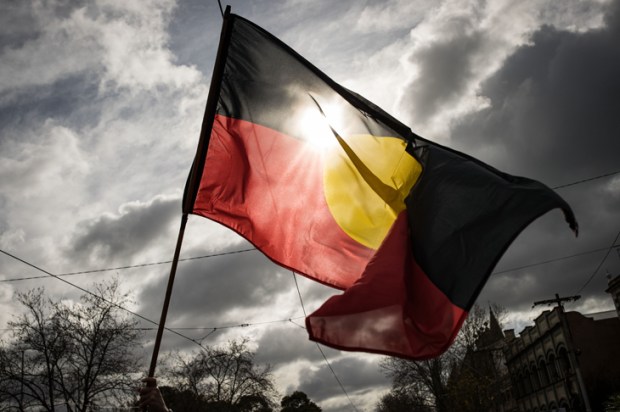
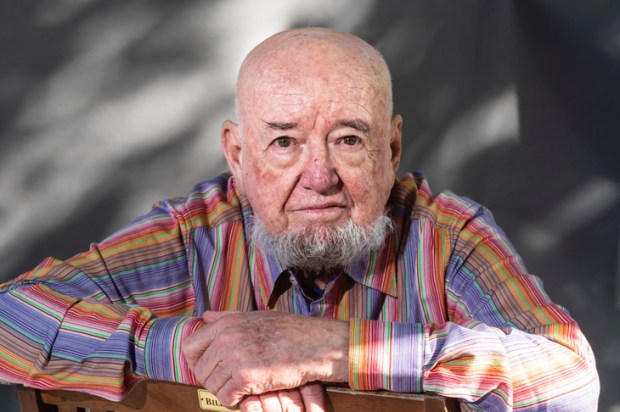
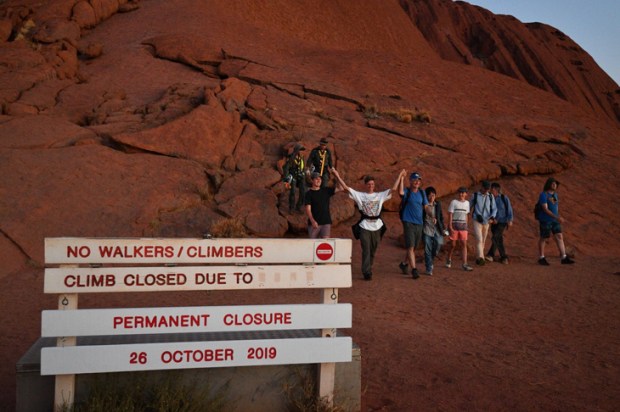






Comments
Don't miss out
Join the conversation with other Spectator Australia readers. Subscribe to leave a comment.
SUBSCRIBEAlready a subscriber? Log in